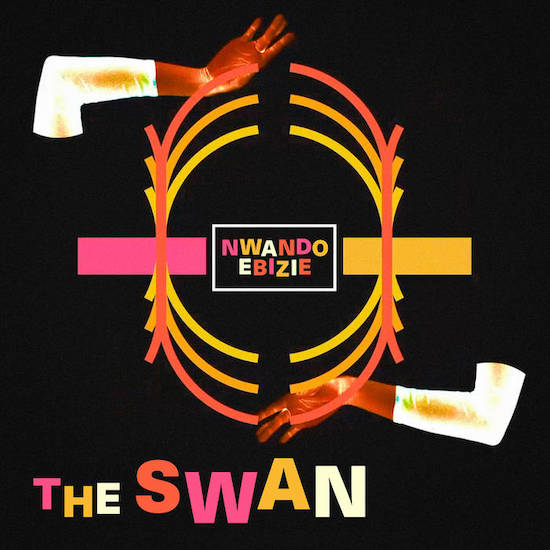Released on Matthew Herbert’s Accidental Records, Nwando Ebizie’s debut album takes us into the possibility of a matriarchal community, referencing the ancient to amplify what might be needed in the present. Ebizie has talked about how she falls “between the cracks of artforms”, that “it clings to gods that I don’t recognise, to boundaries and borders that don’t allow for expansion” – an expansion she started exploring with her blaxploitation pop alter-ego, with 2016’s acclaimed EP The Passion of Lady Vendredi.
On this record, she mines her own Nigerian identity, and in particular being Igbo, but uses this as a portal of further discovery, with references to neuroscience, Black Atlantic rituals, and science fiction, querying strictures we might find ourselves smarting under. The Swan is an act of reclamation – of rituals and collective ceremonies that are being corroded by rampant capitalism and an internet culture that presents as empowering, but actually trades on fragmentary rhythms. And fragmentary rhythms are all over this record, with ‘Battle Cry’’s brass plunging us into a whirlpool of collective experience, picking us up and sweeping us along to ‘I Seduce’, with its darkly satirical narrative of girls from a future society stumbling upon the “manosphere”, wondering what women must have done to be so hated, with a sense of rage crackling above muffled, driving percussion.
The record’s title song is all cosmic discordance, and ‘Myrrha’ is a floaty lament, with its rolling basslines, dreamy vocals, and rich saxophone evoking another theme of the record – pain as transformation. It is a phenomenal composition, articulating something spiritual and defiant. ‘Liturgy’ is pleasingly frantic, referencing the shadowlands that ripen in ‘Shadowland (In the Dreams of Others)’ with its beautiful vocals, and glitchy, minimal beats, it is a perfect preface to ‘True Believer’ which is elegantly haunting, folding in a surprising breakdown that brings to mind Spank Rock.
‘No!’ is positive in its refusal, with wispy sax, and drum and bass-meets-jungle disruption, and ‘Renewal’ is richly sensual. ‘Something Like Empathy (Visual Snow)’ was inspired by Ebizie’s time up on the moors near where she lives, and references a neurological condition that distorts her vision – “there is no clarity, but there is truth”, as she sees “landscapes littered with landscapes”.
In some ways, this record speaks to Björk’s 2017 Utopia, which was a statement about rebuilding through a female-led vision, or Robert Macfarlane’s 2008 essay ‘Ghost Species’, with its desire to preserve something precious that would soon be lost. Ebizie’s Afrofuturist and Black Fantastic project links to these impulses, existing in a speculative ritual space, with a playfully freeform approach. It thrives on paradox: how things can be horribly funny, and beautifully sad, and still worth fighting for.


